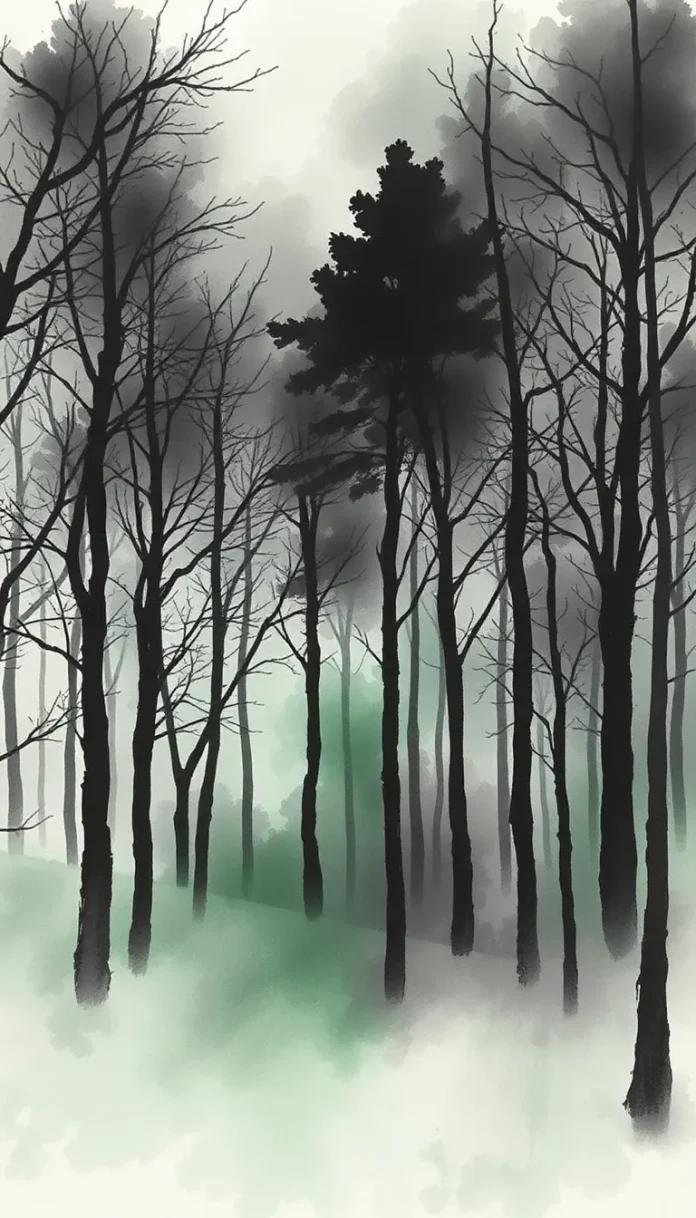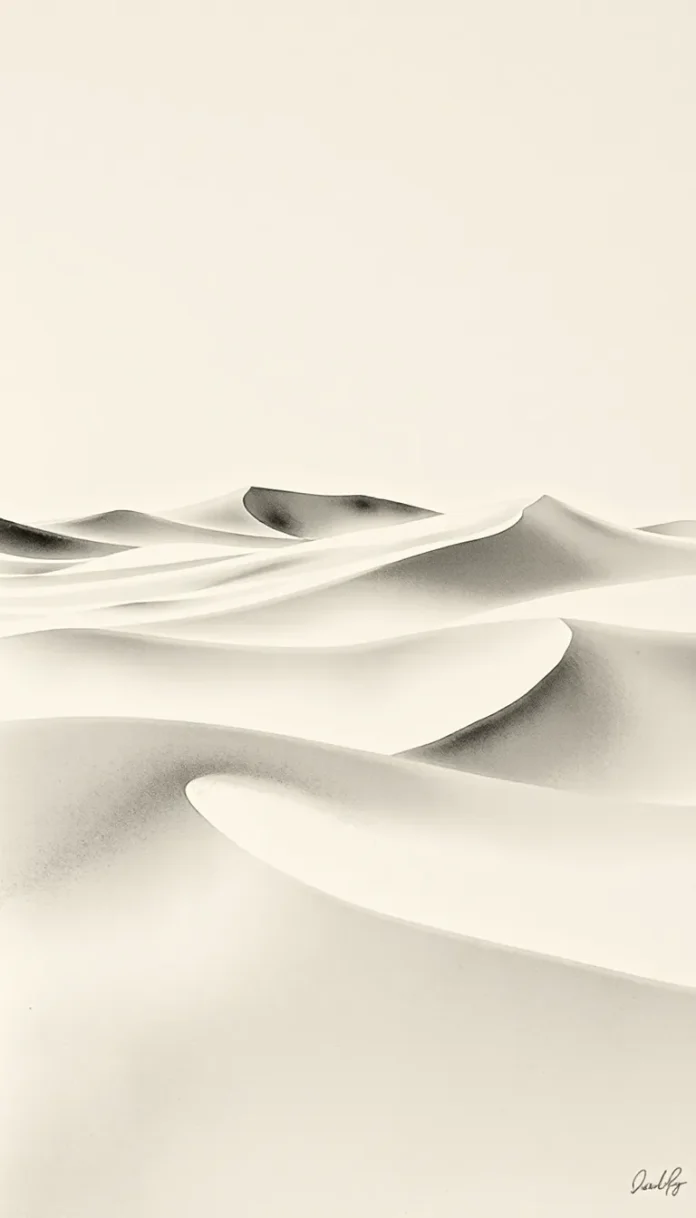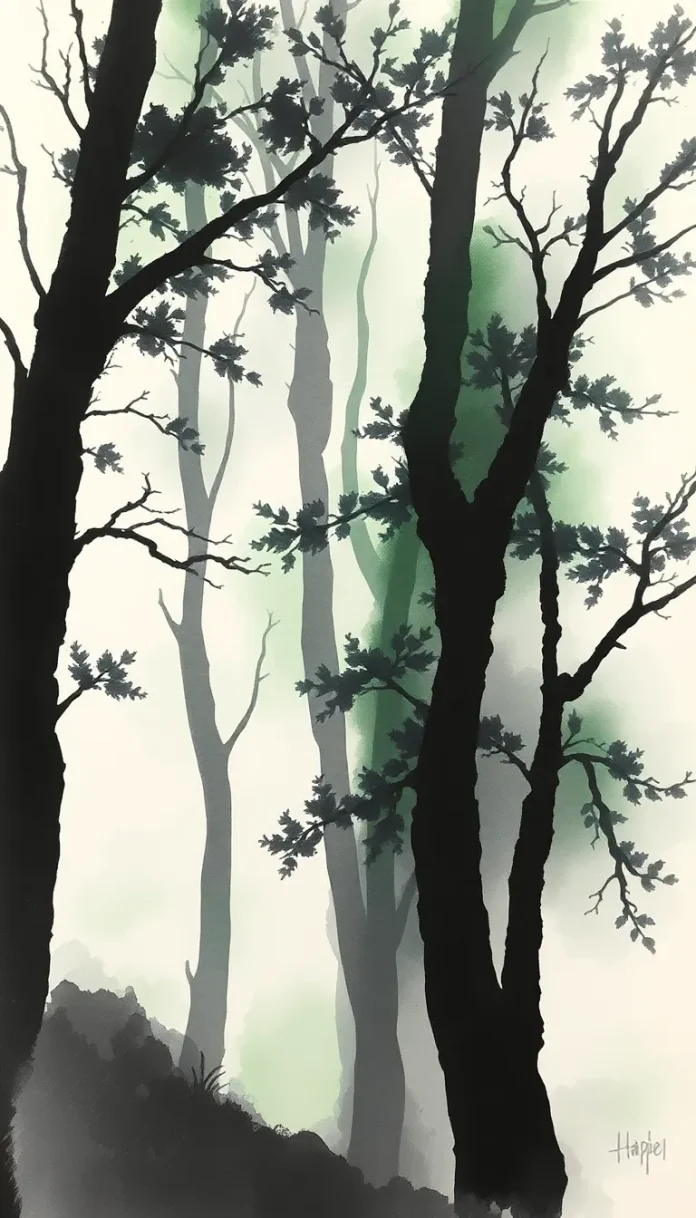Echoes of the Frosted Stars
I.
Beneath the vaulted heavens of crystal fire, the poet trod a solitary path along a glacial road, whose borders merged with the mists of frozen uncertainty. With each step, memories, half-dreamt and half-regretted, unfurled in the recess of his tender spirit, like the delicate petals of a midnight rose, their beauty both transient and forlorn. He murmured soft verses to the stars—an invocation to the eternal, his voice a subtle tremor in the silent dark:
“O boundless abyss, where fate and time entwine,
Grant me the solace of knowing each tear a sign,
Of our fragile souls adrift in the endless embrace,
Amid the frost and despair that time cannot erase.”
II.
The frost seemed to murmur back in ancient tongues as he gazed upward, lost in the luminous sprawl above. Every constellation etched a story, every glimmer a memoir of struggle, and each star whispered secrets of transitory unity—insights into the human condition, as fleeting as the glisten on the frozen leaves of winter. At the heart of his silent pilgrimage lay a ceaseless inquiry: What is the measure of our existence, doomed to unfurl under the threads of fatality and inexorable design?
III.
The wind, carrying formless regrets, rustled the barren trees, conjuring spectral silhouettes dancing in fleeting shapes upon frost-kissed ground. The poet’s mind was a labyrinth of introspection where every thought, like a solitary specter, sought the luminous promise of hope amidst the creeping shadow of inevitability. Wandering further, he encountered a desolate lake, its surface a mirror to the endless, star-strewn firmament, a fragment of eternity in the midst of impermanence. Here, the poet paused, his heart steeped in the melancholic cadence of despair, and set down his quill to scribe the lore of his own soul upon the pallid parchment of nature’s somber memory.
IV.
In the still silence, the poet found solace in quiet dialogue with the night. He spoke softly to the reflective surface of the lake, as if communing with an ancient confidante:
“O mirror of the eternal skies, what tales do you hold within your placid depths?
Is there solace for the weary heart, or merely echoes of sorrows unconfessed?
In your silvery gaze, I behold the tragic irony of life’s ceaseless flow,
Where joy and pain intertwine in endless dance, with no reprieve to bestow.”
The lake, in its icy reticence, returned nothing but an impression of soft ripples, as if it too was resigned to the fate that clung to every living thing. In that moment of reflective despair, every droplet of his essence vibrated with the tender paradox of beauty intertwined with the sting of inevitability.
V.
Beyond the lake, an ancient forest of towering firs lay enshrouded in the pallor of winter’s embrace. Their branches, draped in crystalline frost, swayed as if performing a dirge dedicated to forgotten memories. Venturing into this woodland labyrinth, the poet felt enveloped by the very breath of destiny—a hushed murmur by which every leaf and bough recited the inescapable truth: Life, like the wintry forest, was transient, its splendor shadowed by the specter of demise. In this arena of eternal sorrow, silence became his only companion and the cadence of his heartbeat the solitary refrain of an elegy.
VI.
As the night deepened and the horizon receded into the gloom of impending dawn, the poet halted amid the towering, icy sentinels of nature. There, amidst a clearing dusted with the purest snow, he set upon a solitary stone bench—a relic borne witness to countless untold stories. Beneath the glimmering vault of heaven, his eyes retraced invisible tracks across the infinite, contemplating the entangled threads of destiny and despair.
In a reverie of sorrowful wonder, amid the interplay of starlight and shadow, his thoughts turned inward, a silent soliloquy emerging amid the cosmic silence:
“In the depths of this frozen night, where fate’s cruel hand does weave,
I ponder the bitter beauty of life—of all that we conceive.
Men, like fragile figures cast upon a stage dimly lit by time,
Gamble with hopes and longings that, as if in vain, must sublime.
Is there measured worth in our ceaseless strife, in the sorrow we endure,
When every heart, resigned to fate, finds solace in despair so pure?”
VII.
Emboldened by such musings, the poet willed himself onward, his path now marked by a determination born of bitter knowledge. Yet, as the chill deepened and the nights grew grimmer still, the specter of fatality crept ever nearer—its presence manifesting in the quiet disintegration of fragile dreams. His every step was now imbued with the stark recognition that to dwell in beauty was to court the inevitable agony of loss.
VIII.
Deep in the heart of the nocturnal landscape, the poet happened upon an isolated hamlet, a small cluster of stone cottages whose windows flickered like the faint glimmers of hope among relentless night. In that silent settlement, he encountered an old man, a solitary figure whose eyes bore the weary imprints of lived tragedy. Their meeting, although wordless at first, soon unfolded in hushed, measured dialogue—a communion of souls resigned to the unyielding flow of fate.
The old man, with quavering yet sincere tone, recounted tales of a life once vibrant and full of promise, now reduced to echoes beneath the relentless march of time:
“I once beheld the radiant bloom of a summer sun,
When dreams and youth danced exuberantly in the run.
Yet now, like the twilight succumbing to endless night’s decree,
I see but fading hues, as shadows claim what once was free.
Have you, dear poet, perceived the same melancholy art,
Where every rose must wither, every kindled hope depart?”
In the resonance of these shared lamentations, the poet perceived the profound truth resonating through the old man’s words—the inescapable plight of mortal endeavors, where every luminous joy was inextricably bound to inevitable grief. His heart, stirred by the common plight of humankind, expanded with a sorrow so deep that even the stars above seemed to weep with him.
IX.
As the hours waned, the poet lingered in the hamlet, exchanging fragile confidences and silent affirmations of shared despair. Together, they roamed the frost-bitten lanes, every step a testament to the unyielding march of destiny. Under an expanse of glittering constellations, the old man’s eyes met the poet’s, and in that brief communion of looks, a mutual understanding was achieved—one that acknowledged the tragic beauty of life itself.
Yet, within the depths of the poet’s soul, a quiet unrest burgeoned—an inescapable awareness that every moment of beauty was a prelude to sorrow, every word of gentle solace was underscored by the refrain of inevitable loss. This realization, a quiet poison dripping from the chalice of existence, loomed over his spirit like a spectral reminder of the transient nature of all that is cherished.
X.
After leaving the hamlet with a heavy heart, the poet resumed his solemn journey under the icy vault of the starry sky. The path ahead was fraught with the silent anticipations of fate—a terrain where every step echoed with the dirge of yesteryears. The frozen ground mirrored the inner void of his soul; each footfall was a quiet testament to battles fought in the secret recesses of his mind, where hope and despair waged a ceaseless war.
In a desolate clearing, amid a congregation of frost-kissed pines, the poet fell to his knees, his spirit overwhelmed by the enormity of the eternal void. His quill lay forgotten at his side, abandoned in the face of a truth both stark and unforgiving. With a voice trembling yet resolute, he confessed to the silence:
“What hope remains, dear night, when dreams merge with despair,
When the human heart, so fragile, is marred beyond repair?
Are we but fleeting phantoms, adrift in an unforgiving sea,
Destined to unravel, consumed by time’s relentless decree?
In this vast expanse of frozen solitude, I see the bitter art:
The beauty of our mortal coil, forever destined to depart.”
XI.
As the night meandered toward the pale horizon, the starry firmament seemed to recoil from the weight of such sorrowful admissions. The luminous bodies, distant and indifferent, continued their silent arc through the heavens, heedless of the tragic laments echoing on earth. The poet, in his introspection, recognized the immutable law of existence: that every light, no matter how bright, was fated to be dimmed by the inexorable shadow of time.
In a final, poignant soliloquy beneath the celestial vault, the poet proclaimed his inner despair, a lamentation for a world bereft of lasting joy:
“So sing the stars, in tones both cold and clear,
Of fortunes lost in time’s relentless, biting spear.
We wander thus, encased in winter’s cold embrace,
Yearning for the warmth of memories, now effaced.
Fatal, our journey, from first bloom to bitter end,
Leaving nothing but the echoes of a heart that cannot mend.”
XII.
With these somber reflections, the poet rose and retraced his solitary path, now acutely aware of the burden that each step carried. The frost beneath his feet whispered of countless souls who had trod this tragic journey before him, leaving only ephemeral traces in the annals of time. In the profound silence of the glacial night, his eyes, dim and distant, sought solace in the infinite tapestry above, where every star bore witness to the inexorable truth of mortal frailty.
The twilight of his journey drew near, yet with each passing moment, the pervasive chill of inevitability froze even the most ardent flickers of hope within his heart. The poet’s soul, burdened by the perennial ache of existential solitude, found itself isolated in a vast expanse of shimmering misery. The stars, indifferent and eternal, bore silent testimony to the ceaseless march of time—a relentless tide that swallowed all dreams, leaving only the tragic aftertaste of despair.
XIII.
In the final hours of that haunting night, the poet reached a solitary hillock crowned with gnarled trees, their forms distorted by the icy hand of fate. Here, at the very summit of his tortured pilgrimage, he paused to gaze upon the majestic, yet melancholic, panorama of his world. The heavens unfurled above him in a celestial ballet, an eternal interplay of light and shadow, but even their radiant splendor bore the indelible mark of sorrow.
As the wind bore the lament of lost years, the poet’s thoughts turned inward to a profound epiphany—that the beauty of existence, though fleeting, was inseparable from the agony of its inevitable demise. The human condition, he realized, was an intricate tapestry woven with strands of ephemeral joy and ceaseless despair, each moment a delicate balance between hope and that ever-encroaching twilight of fate.
With a heavy heart, he inscribed his final verse upon the pallid parchment of the night, a last farewell to his dreams and the relentless procession of time:
“Beneath this vaulted, endless sky, I cast my final plea,
For in the boundless dance with fate, there lies no victory.
Each star a silent witness to the bitter cost we pay,
As life, a fragile ember, fades into the cold decay.
And so, with tearful reverence, I embrace the cruel decree—
That mortal hearts, though briefly lit, must succumb to endless night’s majesty.”
XIV.
As the first hesitant blush of dawn crept upon the horizon, the silence of the frost-bitten night was broken only by the slow, labored exhalation of a soul resigned to its tragic destiny. The poet, his spirit weighed down by the ineluctable sorrow of his truth, gazed upward one final time. Those same stars he had once revered now appeared as distant reminders of all that was unattainable—a cosmic dirge echoing the frailty of the human condition.
In that hallowed moment, beneath the reluctant unveil of morning light, he surrendered to the inevitability of his own dissolution, embracing the bitter cadence of fate with a heart both torn and tender. The ephemeral glow of his remaining vitality flickered and waned, leaving behind only the haunting reverie of unfulfilled dreams and the quiet murmur of eternal regret.
XV.
Thus, as the fragile veil of night was irretrievably torn by the dawn, the poet’s solitary figure dissolved into the mists of memory—an echo of sorrow adrift in the vast, indifferent expanse of time. His journey, marked by both luminous wonder and poignant despair, came to a tragic denouement—a testament to the ceaseless, often cruel march of fate upon the delicate fabric of mortal life.
The frost remained, a silent chronicler of the poet’s despair, and the stars—a silent legion of indifferent sentinels—continued their eternal vigil. In the wake of his passing, the night bore witness to the immutable truth: that the human soul, though capable of resplendent beauty and profound melancholy, is forever ensnared by the inexorable tide of fatal destiny.
And in the final, mournful strains of that wintry nocturne, the world resounded with the sorrowful refrain of all that is lost, leaving behind a lingering trace of aching beauty and a quiet lament for a heart that dared to glimpse the infinity, yet was consumed by its tragic embrace.
Farewell, dear poet, your elegy now a part of the eternal tapestry—for in your delicate surrender, the infinite sorrow of mortal fate is indelibly inscribed upon the frozen night.


